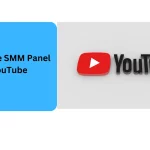Keyword research plays a vital role in all types of search engine optimization. YouTube is also a part of them. For YouTube channel optimization you also need to use proper keywords. In this context, we are sharing some tips for keyword research for the YouTube channel.
Let’s jump into the deep:
Importance of Keyword Research for Growing a YouTube Channel
Keyword research plays a pivotal role in the growth and success of a YouTube channel. Here are several reasons highlighting the importance of keyword research for growing a YouTube channel:
Enhanced Discoverability:
Effective keyword research helps your videos get discovered by the right audience. By understanding the terms and phrases your target viewers are searching for, you can optimize your content to align with their interests.
Improved Search Engine Rankings:
YouTube is the second-largest search engine in the world, and users often use it to find specific content. Optimizing your videos with relevant keywords increases the likelihood of your content ranking higher in search results, leading to more visibility.
Targeted Audience Engagement:
Tailoring your content to specific keywords ensures that you’re reaching an audience interested in your niche. This targeted approach improves the chances of attracting engaged viewers who are more likely to subscribe, like, and share your content.
Competitive Edge:
Conducting thorough keyword research allows you to identify gaps in the content landscape and capitalize on opportunities that your competitors may have missed. It provides a strategic advantage in a competitive platform like YouTube.
Content Planning and Strategy:
Keyword research guides your content strategy. By identifying trending topics and understanding what your audience is searching for, you can create content that aligns with their interests, increasing the likelihood of your videos being recommended by YouTube.
Optimized Video Titles and Descriptions:
Crafting compelling and keyword-rich titles, descriptions, and tags is essential for YouTube SEO. This optimization not only improves search engine rankings but also entices users to click on your videos when they see them in search results or recommendations.
Long-Term Visibility:
Implementing a solid keyword strategy contributes to the long-term visibility of your videos. While trends may come and go, evergreen content optimized for relevant keywords continues to attract views over time, providing a consistent source of traffic.
Adaptation to Viewer Preferences:
As viewer preferences and search trends evolve, keyword research helps you stay attuned to these changes. This adaptability ensures that your content remains relevant and continues to meet the needs and interests of your audience.
Maximized Monetization Opportunities:
For channels focused on monetization through ads or partnerships, effective keyword research can attract a larger and more engaged audience. This, in turn, increases the potential for higher ad revenue and collaboration opportunities.
Data-Driven Decision Making:
Keyword research provides valuable insights into what works and what doesn’t in your niche. By analyzing the performance of different keywords, you can make data-driven decisions to refine your content strategy and optimize for success.
Also Read:
Tips to Keyword Research for YouTube Channel
Keyword research for a YouTube channel is a crucial step to enhance discoverability and attract the right audience. Here’s a detailed guide on how to conduct keyword research for your YouTube channel:
1. Understand Your Audience and Niche:
Identify your target audience and understand their preferences.
Define your niche and content themes to tailor your keyword research to your channel’s focus.
2. Brainstorm Seed Keywords:
Begin with a list of seed keywords related to your channel’s content. These are broad terms that represent your main topics.
3. Use YouTube Search Suggestions:
Start typing your seed keywords into the YouTube search bar and note the auto-suggestions. These suggestions reflect popular searches and can inspire additional keyword ideas.
4. Explore Related Videos and Channels:
Look at the content of popular videos in your niche. Check the video descriptions and titles for relevant keywords. Also, explore related channels to identify common themes.
5. Utilize YouTube Analytics:
If you already have a YouTube channel, use YouTube Analytics to understand which keywords are driving traffic to your videos. Identify high-performing keywords and incorporate them into your future content.
6. Leverage Keyword Research Tools:
Utilize keyword research tools like Google Keyword Planner, Ahrefs, SEMrush, or dedicated YouTube keyword tools like VidIQ or TubeBuddy. These tools provide insights into search volume, competition, and related keywords.
7. Evaluate Keyword Relevance and Competition:
Prioritize keywords that are highly relevant to your content. Balance this with an assessment of competition – choose a mix of high and low-competition keywords to optimize your chances of ranking.
8. Long-Tail Keywords:
Incorporate long-tail keywords (more specific, longer phrases) in your research. These can attract a niche audience and often have lower competition.
9. Check Trends and Seasonality:
Use Google Trends to identify keyword trends over time. Consider seasonality and create content around topics that are consistently popular.
10. Analyze Competitor Keywords:
Analyze the keywords your competitors are targeting. Identify gaps in their content strategy that you can fill with your videos.
11. Create a Keyword Spreadsheet:
Organize your selected keywords in a spreadsheet. Include metrics like search volume, competition, and relevance to prioritize your focus.
12. Optimize Video Titles, Descriptions, and Tags:
Incorporate your selected keywords naturally into your video titles, descriptions, and tags. Craft compelling titles that encourage clicks.
13. Monitor and Adjust:
Regularly review the performance of your videos using YouTube Analytics. If certain keywords consistently perform well, consider creating more content around those topics.
14. Engage with Your Audience:
Pay attention to comments and questions from your viewers. Use their language and concerns to inform your keyword strategy.
15. Stay Updated:
Stay informed about changes in your niche and industry. Update your keyword strategy accordingly to reflect current trends and interests.
End Words
Keyword research is not just about incorporating words into your content; it’s a strategic approach to understanding your audience, outperforming competitors and ensuring that your YouTube channel remains visible and relevant in the dynamic online landscape. By investing time and effort into comprehensive keyword research, you set the foundation for sustainable growth and success on the YouTube platform.
Remember, effective keyword research is an ongoing process. Regularly update and refine your strategy based on performance data and changes in your niche. This approach will help your YouTube channel stay relevant and continue to attract the right audience over time.





